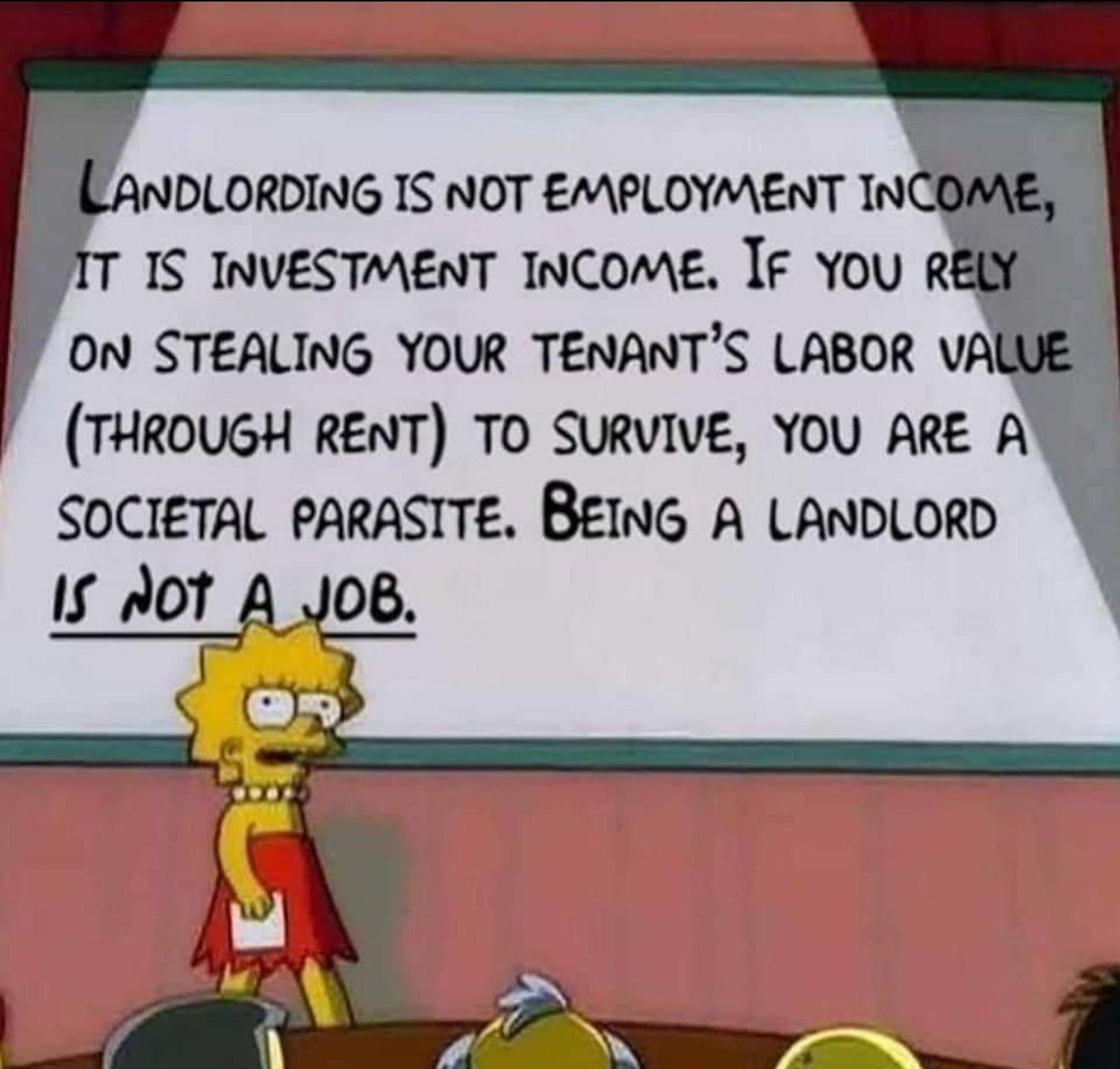this post was submitted on 22 Apr 2024
33 points (85.1% liked)
A Boring Dystopia
9960 readers
1196 users here now
Pictures, Videos, Articles showing just how boring it is to live in a dystopic society, or with signs of a dystopic society.
Rules (Subject to Change)
--Be a Decent Human Being
--Posting news articles: include the source name and exact title from article in your post title
--If a picture is just a screenshot of an article, link the article
--If a video's content isn't clear from title, write a short summary so people know what it's about.
--Posts must have something to do with the topic
--Zero tolerance for Racism/Sexism/Ableism/etc.
--No NSFW content
--Abide by the rules of lemmy.world
founded 2 years ago
MODERATORS
you are viewing a single comment's thread
view the rest of the comments
view the rest of the comments

it's really not tho, i'm sorry but all Georgism/ and value tax is/was a form of pre-marxist capital taxation.
or do you think that Property tax is stopping BlackRock as we speak?
Property taxes != Land value taxes
Further, it's not a tax on capital; it's a tax on land. It's very explicitly designed to target land, as land has distinct economic properties that make it a prime target for taxation.
And yes, it does target speculative investments like those of Blackrock:
https://osf.io/preprints/osf/54q68
A tax on land is a tax on capital. Land has been capital longer than the concept of capital has existed.
It's not, though. The classical factors of production, whence we get the concept of "capital" as a factor of production, has land and capital as clearly separate:
https://en.m.wikipedia.org/wiki/Factors_of_production
And it's an important distinction. The fact that land is not made and inherently finite makes it zero-sum. Meanwhile, the fact that capital such as education, tools, factories, infrastructure, etc. are man-made and not inherently finite makes them not zero-sum. This distinction has truly massive implications when it comes to economics and policymaking. It's the whole reason LVT is so effective, so efficient, and so fair: it exploits the unique zero-sum nature of land.
It seems you're using a more technical definition than I was. I was thinking something along the lines of definition 1a(3) in this dictionary entry. I agree there are important differences between land and other money-making assets.